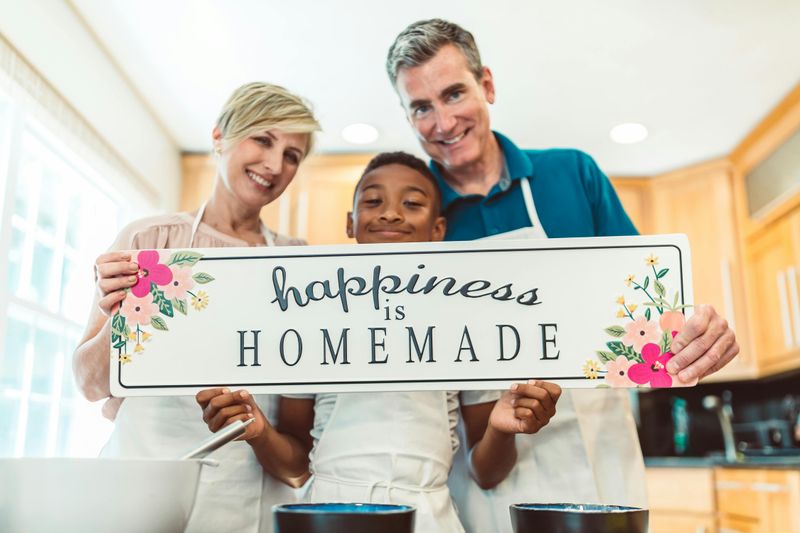12 Relationship Dealbreakers for Women Who Value Themselves

Knowing your worth means recognizing when a relationship isn’t serving your wellbeing. When you value yourself, certain behaviors from a partner simply aren’t acceptable. These dealbreakers aren’t about being picky – they’re about protecting your happiness and mental health. The following list highlights twelve warning signs that signal it’s time to reconsider a relationship.
1. Disrespect Disguised as Jokes

What feels like jokes can actually be emotional harm in disguise. If your partner constantly belittles your appearance, intelligence, or aspirations, it’s a red flag masked as humor.
Pay attention when your gut feels uncomfortable after their comments. If they respond with “you’re too sensitive” when you express hurt, that’s gaslighting, not communication. Healthy relationships build you up rather than tear you down.
Remember that respect forms the foundation of any loving relationship. When someone truly cares for you, they celebrate your uniqueness instead of using it as ammunition for laughs.
2. Lies That Shatter Trust

Trust crumbles quickly when dishonesty enters a relationship. Even small lies signal a willingness to deceive rather than communicate honestly about difficult topics. Once broken, trust requires significant effort to rebuild – if it can be restored at all.
Watch for inconsistencies in stories or that nagging feeling something isn’t right. A partner worth keeping faces challenges with transparency, not deception. They understand that honesty creates safety in the relationship.
Hiding finances, maintaining secret relationships, or fabricating stories about their whereabouts all point to someone who prioritizes convenience over character. Your peace of mind deserves better than constant doubt.
3. The Silent Treatment Specialist

When your partner goes silent on important matters, it’s not a break—it’s a breakdown. Using silence as a form of punishment keeps problems hidden and prevents healing.
Mature partners stay engaged even during disagreements. They might request time to process feelings, but they commit to returning to the conversation. Your thoughts and concerns deserve acknowledgment.
A relationship without open dialogue cannot grow or overcome obstacles. If your attempts to communicate are consistently met with walls of silence, you’re being denied the basic respect of being heard.
4. Freedom-Limiting Behavior

Your social circle starts shrinking mysteriously. Suddenly your friends are “bad influences” and family gatherings become sources of tension. These are warning signs of controlling behavior that gradually isolates you from your support network.
Controlling partners often disguise their behavior as protection or care. They might check your phone, question your whereabouts constantly, or make decisions without consulting you. Freedom to maintain your identity outside the relationship isn’t optional – it’s essential.
Healthy love encourages growth and independence alongside togetherness. Someone who truly values you will celebrate your autonomy rather than feel threatened by it. Your personal freedoms aren’t negotiable relationship perks.
5. Wandering Eyes and Hearts

Fidelity isn’t complicated – it’s a choice made daily. When your partner consistently notices others, flirts openly, or maintains inappropriate connections, they’re showing disregard for your feelings and relationship boundaries. These behaviors create an atmosphere of insecurity and disrespect.
Physical cheating may seem like the obvious dealbreaker, but emotional affairs can be equally damaging. Secret conversations, hidden relationships, and diverted emotional energy all constitute betrayal. Your heart deserves complete commitment, not divided attention.
Someone who truly values you won’t risk losing you for momentary excitement. They understand that loyalty builds the safety needed for love to flourish. Accept nothing less than a partner who chooses you daily.
6. Boundary Bulldozing

“No” is a complete sentence that deserves respect. Whether physical, emotional, digital, or financial, your boundaries exist to protect your wellbeing. A partner who consistently ignores these limits demonstrates fundamental disrespect for your autonomy.
Healthy relationships thrive on mutual respect for personal boundaries. Someone who pressures you to change your mind after you’ve set a limit is showing they prioritize their desires over your comfort. Your boundaries aren’t suggestions – they’re necessary protections.
Watch for subtle boundary violations that escalate over time. That uncomfortable feeling when someone pushes past your limits isn’t oversensitivity – it’s your intuition recognizing disrespect. Trust yourself enough to enforce consequences when boundaries are crossed.
7. Emotional Chess Games

Being in love shouldn’t feel like navigating a maze without a map. Constant manipulation leaves you lost, spinning in circles as you struggle to reclaim your sense of self and stability.
Watch for partners who twist your words, deny obvious truths, or make you question your perceptions. “I never said that” or “You’re overreacting” become familiar phrases when gaslighting occurs. Your feelings and experiences are valid, regardless of someone else’s attempts to rewrite reality.
Healthy relationships operate with straightforward communication, not strategic mind games. A worthy partner expresses needs directly rather than manipulating situations to get their way. Your emotional wellbeing isn’t a playing field for someone else’s control tactics.
8. Words and Actions That Wound

There’s no acceptable level of abuse in a loving relationship. Name-calling, screaming, intimidation, or physical aggression – even just once – signals danger ahead. These behaviors typically escalate rather than improve over time.
Many abuse victims report ignoring early warning signs, hoping incidents were isolated. Research consistently shows that abusive patterns tend to worsen, especially after relationship milestones like moving in together or marriage. Your safety must always come first.
Anger management issues aren’t your responsibility to fix. Someone who truly loves you will seek help for destructive behaviors rather than expecting you to tolerate them. Remember that abuse survivors often report the emotional scars last longer than physical ones. You deserve gentleness, not fear.
9. Perpetual Peter Pan Syndrome

Avoiding direction and shifting blame make you the caretaker in a relationship that should be a partnership.
Watch for patterns of unfinished projects, employment instability without concern, or financial irresponsibility. While everyone faces setbacks, how someone responds reveals character. A worthy partner works toward solutions rather than expecting rescue.
Ambition doesn’t necessarily mean career obsession – it means taking ownership of one’s life path. Supporting someone through challenges differs fundamentally from carrying someone who refuses to walk. Your partner should contribute to your life, not merely consume your resources and energy.
10. Emotional Starvation

When emotional needs go unmet day after day, the relationship quietly fades, breeding loneliness beneath the surface.
Neglect often manifests as distraction, indifference, or minimal effort. Your achievements go uncelebrated, your struggles uncomforted. A partner physically present but emotionally absent leaves the same emptiness as physical absence.
Everyone deserves a relationship where their presence matters and their needs receive attention. While no partner can meet every need perfectly, consistent emotional neglect signals someone unwilling to prioritize your happiness. Your heart requires regular nourishment to thrive – don’t settle for emotional crumbs.
11. Destructive Habits on Repeat

Turning a two-person relationship into a trio, addiction claims space meant only for you and your partner.
The pattern becomes predictable: promises to change, temporary improvement, then relapse without professional help. While supporting someone through recovery shows compassion, enabling harmful behaviors doesn’t. Your wellbeing matters too.
Most concerning is denial – refusal to acknowledge problems or seek appropriate help. Someone committed to the relationship will commit equally to addressing issues that threaten it. You can offer support without sacrificing your stability to someone unwilling to pursue lasting change.
12. Fundamental Value Misalignment

Some differences enrich relationships, while others create insurmountable divides. Core values around religion, children, finances, or life goals aren’t easily compromised. Ignoring these fundamental misalignments leads to resentment and regret years later.
Early excitement often masks incompatibility. You might dismiss warning signs, hoping love will overcome practical differences. While compromise strengthens relationships, sacrificing your deepest values creates identity erosion over time.
Someone who respects you won’t pressure you to abandon your fundamental beliefs or life vision. Healthy partnerships find common ground while honoring individual values. Ending a relationship due to core incompatibility isn’t failure – it’s wisdom that prevents future heartache for both people.

Comments
Loading…